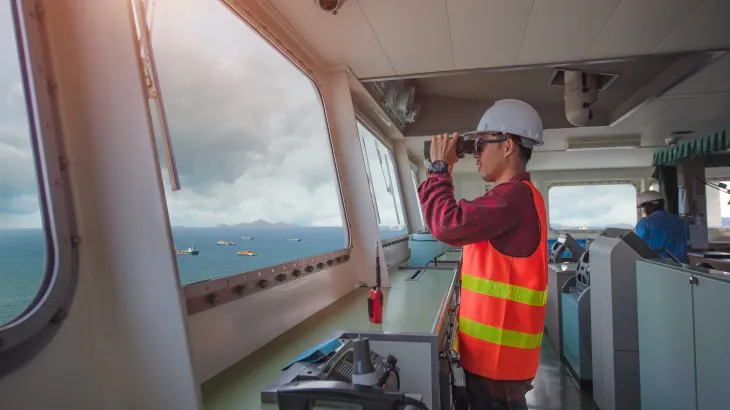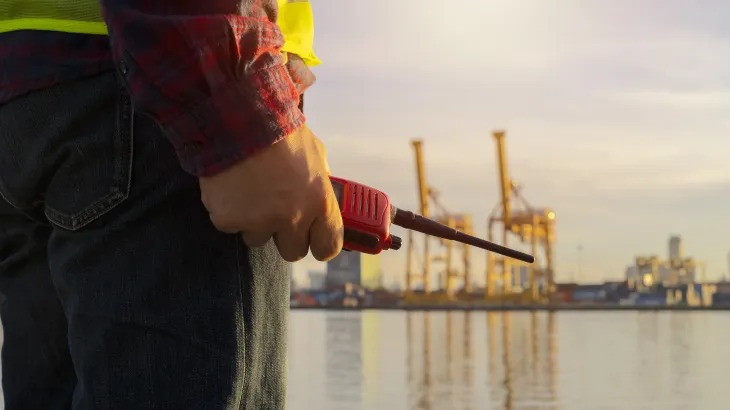Environment
With 90% of the world’s goods moved by sea, decarbonization is a critical goal for the shipping industry. Responsible maritime operations are essential to long-term success, resilient supply chains and sustainable growth for future generations.
At Holcim Trading & Shipping, we’re committed to decarbonizing maritime logistics and reducing our environmental impact across our operations.
Toward net zero shipping
Shipping is the most carbon-efficient way to move goods globally, emitting far less CO2 per tonne-kilometre than all other modes of transportation. Yet, its massive scale means that the sector is still responsible for roughly 2% of global CO2 emissions.
This presents a challenge: how do we lower emissions further in the lowest-emission transportation sector? The International Maritime Organization (IMO) has set a 2030 target of a 40% efficiency gain that can be met with significant improvements across fleets and operations.
The IMO target also requires a 50% reduction in total carbon emissions from international shipping by 2050 compared to 2008.
Achieving these goals relies on the development and deployment of zero-carbon technologies. The next decade will be critical for designing and scaling solutions that make carbon-neutral shipping commercially viable.
IMO targets
Our commitment to a healthy planet
While Holcim Trading & Shipping only contributes to a tiny fraction to the shipping industry's overall CO2 emissions, we are fully committed to playing our part in the global shift to lower-carbon shipping.
We operate with a goal of zero harm, embedding sustainability in everything we do, from daily operations to long-term strategy.
Our aim is to both decarbonize our activities and offer products with lower environmental footprints that support climate-resilient infrastructure globally. We believe that collaboration among value chain stakeholders and focusing on maritime decarbonization is key to a sustainable maritime future.
We act throughout the value chain by:
- Collaborating with our suppliers to implement high-impact changes to sourcing and material usage
- Evaluating ship owners for CO₂ performance and advocate for efficient vessels
- Supporting proper port equipment maintenance to prevent environmental harm








